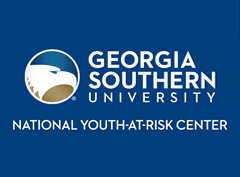Integrating the Arts: Using visual arts to feed expression and promote student engagement
Focused Area
Youth-At-Risk in Urban Settings
Relevance to Focused Area
Our presentation addresses the need for at risk youth to be expressive. The “at risk” youth may not be exposed to the arts in the everyday setting. The only chances a student may get to be creative and expressive is at school. Being expressive is essential for all students. Art integration allows children and youth in high-poverty, urban populations to feed expression and creativity.
Primary Strand
Social & Emotional Skills
Relevance to Primary Strand
Our presentation addresses the need for at risk youth to be expressive. Fostering creativity and expression in the classroom will promote student empowerment and also their self-esteem. Art integration can make this possible. Students are able to choose the way they acquire information and show mastery of skills.
Brief Program Description
As educators, we need to provide students with multiple opportunities to be expressive. Being expressive will promote student empowerment and also their self-esteem. Instead of stifling creativity, let’s foster it through engaging activities. Integrating visual arts into core content areas can make this possible especially for the at risk youth.
Summary
Our presentation will consist of an informational session joined with hands on activities teachers can employ in their classroom using visual arts. Using the visual arts in your classroom not only promotes student engagement and student retention, it also gives students chances to be expressive. This presentation will encompass lessons to incorporate in the both primary and secondary classrooms.
The “at risk” youth may not be exposed to the arts in the everyday setting. The only chances a student may get to be creative and expressive is at school. Art integration allows children and youth in high-poverty populations to be expressive. Being expressive is essential for all students. Fostering creativity and expression in the classroom will promote student empowerment and also their self-esteem.
Art integration promotes differentiation in the classroom through instruction. We know that not all children learn in the same way. Visual arts will allow the visual-spatial and intrapersonal learner to shine. Students can explore other avenues for acquiring knowledge. Teachers can provide alternative methods for assessment. Taking a break from the mundane will promote student engagement and retention.
Many teachers are reluctant to integrate visual arts due to their own reservations the arts. You do not have to be an artist to facilitate visual arts integration in your classroom. Our presentation will provide teachers will visual art integration lessons to employ in their classroom. There’s more to visual arts than drawing and painting. We will allow participants to experiment with hands on activities for both primary and secondary classrooms.
Evidence
In the Journal for Learning through the Arts, researchers Monique Poldberg, Guy Traimin, and Nancy Andrzejczak wrote an article on the importance of the integration of visual arts in core content areas. The article featured a study conducted on second grade classrooms integrating visual arts with literacy and science. The study showed that all learners benefited from the arts. The researchers claim that “students demonstrated increased performance across all three content domains”(Poldberg, Traimin,and Andrzejcazk, 2013, p.5) .
Poldberg, M. M., Trainin, G., & Andrzejczak, N. (2013). Rocking Your Writing Program: Integration of Visual Art, Language Arts, & Science. Journal For Learning Through The Arts, 9(1).
Format
Poster Presentation
Biographical Sketch
Jessica Hood is a native of Savannah, Georgia. She received her baccalaureate degree from Savannah College of Art and Design in Fine Art. Furthering her education, Mrs. Hood received her Master’s degree in Early Childhood Education from Armstrong State University. Mrs. Hood uses art integration in her own classroom teaching third grade in a Title I school located in Savannah, Georgia.
Ms. Monique V. Nelson is a native of Charleston, South Carolina. She received her baccalaureate degree from the College of Charleston in Psychology. Furthering her education, Ms. Nelson received her Master’s degree in Early Childhood Education from Armstrong State University. Following her love for children, she is currently employed as a Kindergarten teacher in a Title I school located in Savannah. There, Ms. Nelson is able to integrate the Arts along with Common Core instruction to enhance student engagement in the classroom.
Start Date
11-5-2015 5:45 PM
End Date
11-5-2015 6:45 PM
Recommended Citation
Hood, Jessica and Nelson, Monique, "Integrating the Arts: Using visual arts to feed expression and promote student engagement" (2015). National Youth-At-Risk Conference, West (2015-2017). 15.
https://digitalcommons.georgiasouthern.edu/nyar_vegas/2015/poster/15
Integrating the Arts: Using visual arts to feed expression and promote student engagement
As educators, we need to provide students with multiple opportunities to be expressive. Being expressive will promote student empowerment and also their self-esteem. Instead of stifling creativity, let’s foster it through engaging activities. Integrating visual arts into core content areas can make this possible especially for the at risk youth.
